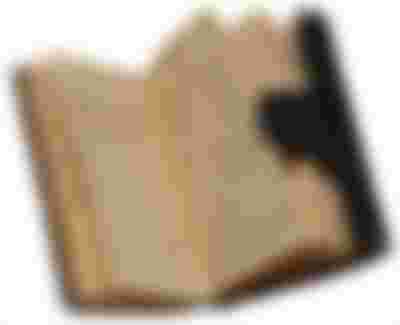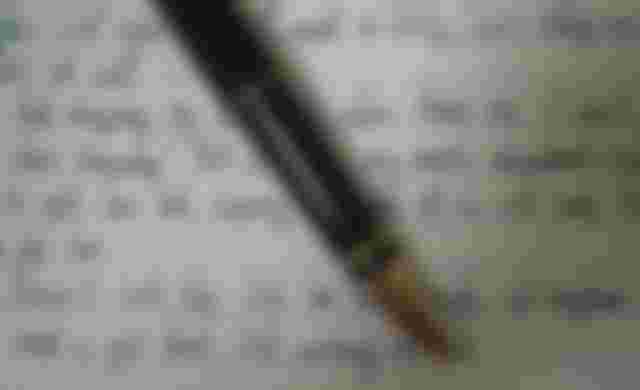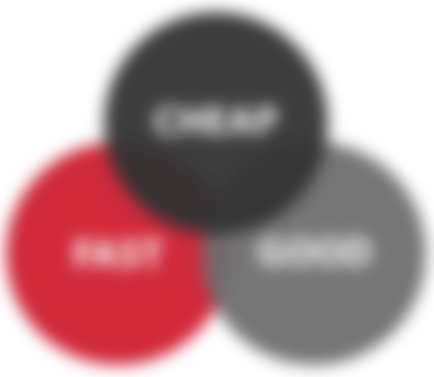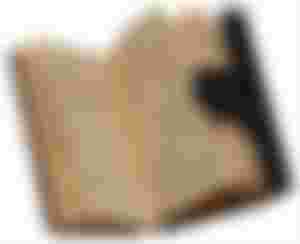
This story begins with a diary.
When I was in fifth grade my grandma bought me something that I thought was strange: a journal.
No, it wasn’t a journal. It was a straight-up diary, complete with a little key to unlock it. At first, I was mortified. Diaries were lame and weren't they for girls? But I liked the idea of having a book that locked, so I decided to keep it. After all, my grandma was my best friend, and she seemed to think it was important for everyone to write their thoughts down, whatever they may be.
I became a binge journaler.
I’d go for streaks where I was addicted to filling those tiny blank pages with anything that popped into my head! I’d be angry with my teacher and rant about him, sick of homework and take it out in my little journal, my cat would be sick and I’d fill the little pages with sorrow and regret. With few exceptions, I realized that my journal was becoming little more than a book of complaints, my entries a series of angry rants and depressed wallowing.
I abandoned my writing for years. I don’t know why, as it seemed to help me cope with things so well, but as life became more complicated and crowded with responsibilities, journaling just seemed to be something I wasn’t willing to make time for any longer. When I took it up again a couple of years ago, it was like seeing an old friend again.
It started just as it had in sixth grade: with me filling the pages with my personal woes and resentments. This time, however, it evolved. It became a notebook I could fill with my dreams, work out some of the difficult spots in my fiction writing, plan a business and keep track of how it was coming along, practice the languages I was studying, and more!
Journaling became an addiction and I started to collect journals. I have no regrets about my little box of all kinds of journals. Leather-bound tomes that look like they’d been crafted in an age long past, moleskin notebooks I picked up at Walmart for no real reason at all, or that strange video game-like thing that Amazon recommended to me. I could use each volume for a different purpose, and they all taught me some amazing things that I’d like to share with you.
Journaling doesn’t have to be a logbook of your life.

Grandma herself kept a journal, but her journals were all pretend. She’d imagine that she was on her way to Oregon or California in a covered wagon and chronicle her various trips across the Great American Desert. For her, it was both exciting and therapeutic, so I didn’t go into my journaling adventure with any ideas that I even had to write down my boring day-to-day life.
I’m not ashamed to admit that I’ve journaled the life of various Skyrim and Morrowind characters that I’ve created, sometimes as an excuse to practice a foreign language, but many times just because life inside of Tamriel is way more fun and productive than life in Minnesota, especially as winter sets in and no one wants to do anything except binge TV and games on the couch.
Moreover, as I’ve already mentioned, you can make a journal for anything. It can be a developer's log for those of us inclined to program our own games. It can be a business journal to record your marketing, product development, or whatever you’re doing. A journal can be used for anything at all!
Journaling works best when you’re actually writing, not typing

This isn’t going to be true for everyone, especially people who are disabled and require a computer, but for me, there’s something about actually writing that makes a journal so satisfying. I tried just typing up entries in Open Office for a while but it never felt real. There’s something about holding something tangible — a book — and feeling the pen or pencil glide across the paper that relaxes the mind. For a while, your hand will cramp, perhaps fiercely, but it gets better over time, and I’ve never heard of something getting carpal tunnel syndrome from writing a journal entry.
(I’ve never researched that notion, though, so let me know in the comments if I’m wrong!)
Studies have shown that handwriting is beneficial to our cognitive development. Handwriting helps us to learn better, but unfortunately many schools in America today are overlooking it in favor of typing.
Journaling not only makes you more self-aware, but it also helps you understand others.

Inscribed within the Temple of Apollo at Delphi were the words “Know thyself.” Both Plato and Socrates agreed that to know yourself first is the key to obtaining greater knowledge and wisdom about other things as well. This need to know oneself first is found in most Eastern philosophies, too.
When I returned to journaling, I got to view myself through a lens that I didn’t know I had, and it wasn’t flattering. At first, I thought a journal would be an imperfect reflection of myself because I would likely write in a way that made me come off better than I really am. However, when I finished writing my first few entries what I saw was, I thought, disgusting.
I saw someone who was desperate, angry, frustrated, hopeless, searching, and failing at most everything. It was very depressing to read and I thought, “This isn’t the legacy I want to leave behind.” I made a deliberate effort to work on myself so I could honestly and with integrity change the tone of my entries into something a little more optimistic.
I beheld myself and hated the sight, so I changed. I learned what makes me happy, where my weaknesses were, and it became clear why some of my relationships with others were struggling. Granted, not all of it was my fault, but by learning to understand myself, I could understand better how people reacted to me.
From there I discovered that by writing, I could understand others. Why so-and-so said such-and-such, why our world seems so divided right now, and how I, in my limited way, could be part of the solution, even if people only seem to grow more hostile and divided.
Journaling is fantastic for mental health!

It’s been proven that keeping a journal improves one’s mood. It lowers blood pressure, relieves stress, and helps people navigate depression. When you write, the emotional side of your brain actually quiets and the logical, thinking side takes over, allowing you to examine your life and environment in ways that, say, texting or talking won’t allow you to. Writing is reflective and it’s analytical in nature, even when my entries seem to be laden with emotion.
A journal teaches you to live in the moment, to take some time to smell the roses. My thoughts are usually a cluttered mess, but writing helps me to declutter it a bit, or at least get them organized in a way that my mind isn’t constantly tripping over the little bits of trivia or opinions that I’ve left in the hallway!
As a side note, the same principles apply to reading vs. hearing. You’re analyzing when you read and far more accepting of when you hear. Perhaps that’s why so many marketers choose to make sales videos instead of sales pages nowadays…
Finally, it’s easy to start.
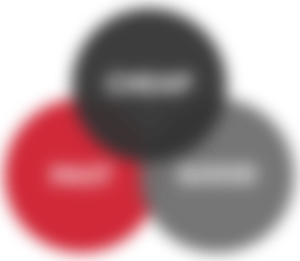
Journaling is a cheap and easy thing to do. All you need is a notebook (any notebook) and a pen or pencil to start. There’s no fancy equipment, no need for a proofreading tool, or anything else you might use as a way to procrastinate. It’s a soothing, introspective experience that made me way more self-aware than I previously was, helped me change for the better, and gave me a fresh perspective on others, even if I wasn’t journaling about my own personal life at the time.
Stay calm and journal on!
